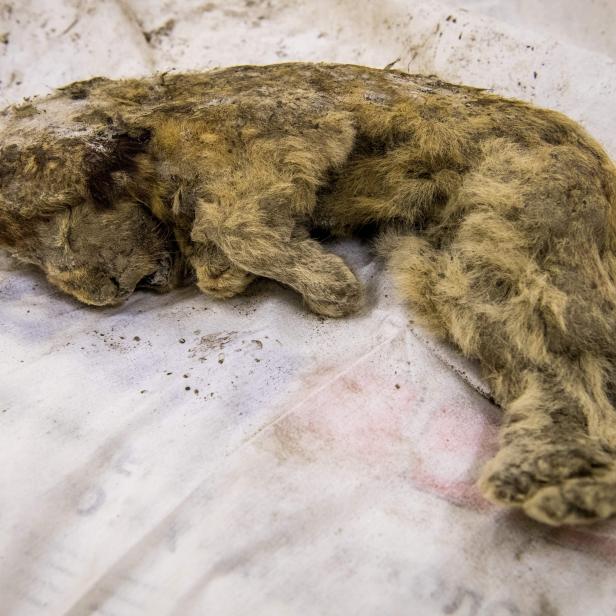
MLADEN ANTONOV
Ice Age Cave Lion Cubs Found Perfectly Preserved Deep in Siberian Arctic
In Discovery’s BEASTS OF THE ICE AGE documentary, scientists uncovered new discoveries of frozen mammoths, cave lions, and other prehistoric animals in a mysterious Siberian cave. Today, experts share more on their findings since the first discovery of the frozen lion cubs in 2017 and 2018.
When the permafrost-preserved baby cave lion cubs were first discovered by mammoth tusk hunters on the banks of the Semyuelyakh River in Russia's Siberian Arctic, scientists thought they were siblings since they were found 15 meters from each other. However, a recent study published in the journal Quaternary, revealed that they died about 15,000 years apart. Using radio carbon dating, scientists know that one of the baby cave lions, nicknamed Sparta, is 28,000 years old and the other, Boris, is 43,448 years old.
"Sparta is probably the best preserved Ice Age animal ever found, and is more or less undamaged apart from the fur being a bit ruffled. She even had the whiskers preserved. Boris is a bit more damaged, but still pretty good," said Love Dalen, a professor of evolutionary genetics at the Centre for Palaeogenetics in Stockholm, Sweden, and an author of a new study on the cubs to CNN.
According to CNN, the study revealed that the cubs were only one or two months old when they passed and didn’t have signs of being killed by a predator. "Given their preservation they must have been buried very quickly. So maybe they died in a mudslide, or fell into a crack in the permafrost," Dalen said. "Permafrost forms large cracks due to seasonal thawing and freezing."
For more on prehistoric animals, stream BEASTS OF THE ICE AGE on discovery+ as scientists unearth precious DNA from mummified remains to learn more about these animals and what happened to them all these years ago.


















